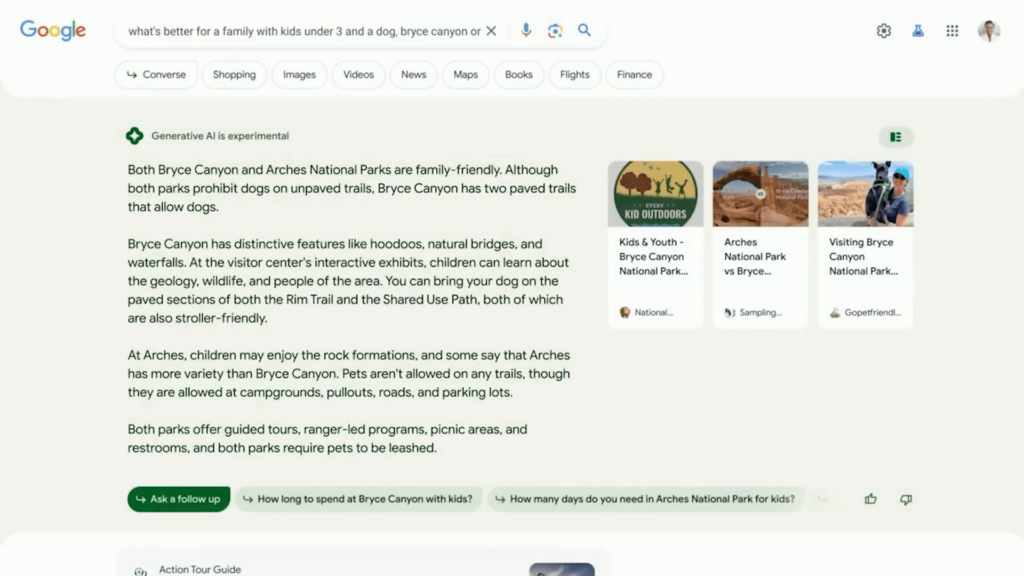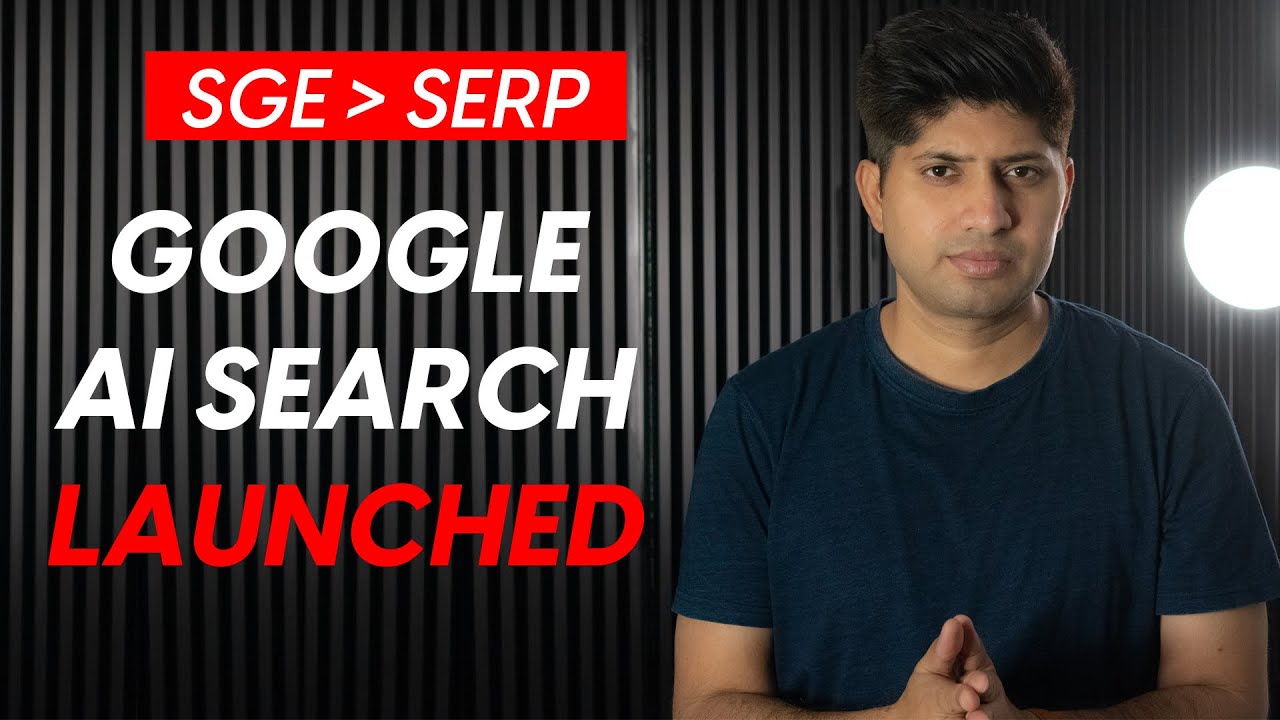The use of artificial intelligence (AI) is redefining the ways of doing business in various sectors and digital marketing also is not emerging. Among the professionals within the industry, the most pronounced change affects Search Engine Optimization (SEO) and the future operations of search engines, the target being Google. As evidenced by the launch of Project MAGI and the Search Generative Experience (SGE), the way users enhance their search experience is about to change completely. In this article, we provide the nitty-gritty details of these changes, their impact on SEO, and what marketers and web owners should do visiting this opportunity.
What is Project MAGI? 🤖
Project MAGI is an initiative that was publicly introduced on May 10, 2023, at the Google I/O Developer Conference, which shows how Google will view the future of search. The objective of this project is to improve the applicability of search functionality by augmenting the search with artificial intelligence. The most noticeable transformation will take place in the Search Engine Results Page (SERP) which will come stocked with Search Generative Experience (SGE) new healthy incapacity.

This new remodel includes a bright new zone of AI-generated content that answers users’ questions and is located between advertisements and organic search results. The aim of SGE is to provide smaller and more informative pieces of information to the users to enhance their experience.
How SGE Will Impact Search Engine Optimization? 📈
The emergence of SGE raises several fundamental issues regarding what the future of SEO optimization will be like. Will some forms of traditional optimization still exist? What challenges will site rankings face? These are questions that not only concern digital marketers but site owners as well.
With the introduction of SGE, the user will get not only an AI-generated answer but links to three to four websites related to the topic. These links can include lesser-known or smaller businesses and other blog websites not only high-profile or authoritative ones. This wide reach of exposure could turn out to be a strong advantage for a lot of companies.

Nevertheless, it is important to point out that websites addressing questions answered with the help of AI must also apply SEO practices. We will choose them based on Google’s ranking and safety mechanisms, ensuring that these regions only contain quality and trustworthy sources.
Criteria for AI-Generated Responses ⚖️
Such descriptive responses will not be activated for every query in the SGE. There are certain conditions, which Google has formulated to explain the instances where these are in point. For example, medical and or legal embarrassing questions would not have any answer from the AI. This is because AI models, including some competitors like Bing, have a reputation of lack of providing accurate information in the right context, which is very dangerous in such sensitive fields.
Google has a brand that is known for providing accurate information, and they understand this, thus, for a certain search query if no reliable and relevant website is found, then the AI response will not be shown. This means that the relevance of content and the level of trust in the website will gain a new level.

Impact on Featured Snippets and SERP Layout 🥇
Another question asked is the disappearance of featured snippets with the appearance of SGE. This new block dedicated to the AI will take up the space of the featured snippets where Google is able to generate a relevant response. But in cases when Google is unable to cite the quality websites it usually does, the old style of the featured snippets may still exist.
Therefore, changes in business practices will need to be undertaken. It is essential to have a clear understanding of how SGE is integrated with the other features on the SERP to be able to be found in the search results.
Preparing for the Future of SEO 🔮
With the introduction of this new way of searching, search engine optimization practitioners need to be ready and knowledgeable. Below are some guidelines that you can employ to brace for these changes:
Build Quality Content: Make sure that the content you have is comprehensive, accurate, and reliable since this is going to be the major factor in the new SGE.
Continue Learning SEO: Learn the basics of SEO but do not lose track of any new development in this field.
You can observe and strategize how changes in the SERP structure will affect your website, and then redesign your approach accordingly.
Make Use of AI-Based Tools: Use smart technology to improve the way you create and optimize the content conforming to the new search experience.
Sign up to Join the SGE Waitlist: If you are in the US, it may be worth signing up for the waitlist as you will be able to access the early features of SGE.

Conclusion: Embracing Change in SEO 🌟
In the current information age, the introduction of Project MAGI and the Search Generative Experience means that a material change has occurred in the history of the development of search systems. As part of search engine development, in the search interface itself, and as a consequence of it, the professional community of optimizers for search engines needs to change to continue operating so in the new subsystem. By creating meaningful, content-rich, SEO-compliant websites and planning for beneficial outcomes in the future, marketers help their websites continue to rank high in search engines.
To conclude, it appears that the nature and scope of SEO might be shifting, but the core tenets of focusing on value for the users are still the same. Go ahead and embrace these changes, and you will be ready to enjoy the fairly promising industry of search in this new “paradigm” that has taken shape.

